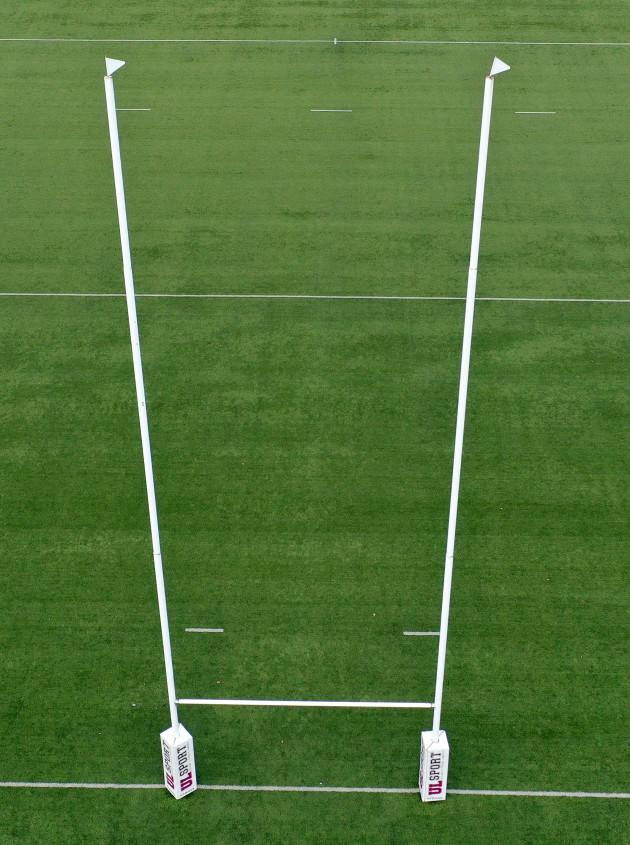LAST UPDATE | 28 Sep 2021
A RUGBY CLUB in Cork has highlighted some of the issues which they feel are preventing the growth of women’s rugby in Ireland, and claims that attitudes within the hierarchy must change in order for the game to flourish.
The Bantry Bay RFC published a series of Tweets yesterday which addressed several issues they said affects women’s rugby at grassroots level. Their statements were published in the wake of Ireland’s disappointing exit from World Cup qualification at the weekend.
At time of publication, the thread has received almost 260 retweets and over 1,000 likes. Meanwhile, conversations about the current state of the women’s game and what direction to take from here, continue to take place across various media platforms.
Patrick O’Connor, a youth coach with Bantry Bay, says his club was prompted to speak publicly about their feelings on the matter following a conversation he had with coaches from the men’s side of the sport.
“As a group, we were kind of just talking as coaches and we were a bit short on numbers this year unfortunately, just with the way things have fallen,” O’Connor says.
“We were just looking at our options and we were looking at regulations basically. Me and one of the other coaches were talking to one of the coaches for the boys’ team and they were saying that when they have only 13 players, or even 12 players, they’re still encouraged to play.
“The fixture might not stand, but play the game. But then the direction we’re getting is that’s 15-aside, and there are no exceptions. And that, to me, there’s no way to misinterpret that.
“The attitude is the problem for us, I suppose,” O’Connor continues. “The boys are being encouraged to play the game. Even if you concede and it’s not a competitive fixture, at least you’re playing a game of rugby. But then we’re being told on the girls’ side, if it’s not 15-aside, it’s not worth playing. That’s the attitude we’re feeling.”
An email from the Youth division of Munster Rugby stating this fixture stipulation has also been seen by The42.
When contacted by The42 about this directive, Munster Rugby replied:
“Munster Rugby did not receive any formal communication from Bantry Bay RFC regarding potential issues or concerns at girls age-grade rugby level.
“No changes have been made to Munster Rugby’s age-grade regulations and participation continues to be the priority for all involved in developing the game across the province.
“The age-grade girls committee, led by dedicated volunteers and representatives of the club game, endeavour to develop, and promote girls’ rugby within the province.
“The committee coordinates fixtures for the various competition levels and assist with the development pathway of age-grade players, spending countless hours working closely with clubs and schools to ensure rugby is accessible to all and the appropriate structures are in place for games to be played each weekend.
“At girls U18 level the participating clubs and age-grade committee introduced a requirement for teams to play 15-aside rugby to maintain competitive status within their league. This was introduced three years ago with the optimum goal leading to an increase in the quality of rugby and experience for those playing at the highest age-grade level before advancing to adult rugby.
“With clubs supportive of this initiative all playing formats and games with reduced numbers continue to be facilitated [minimum 10-aside], with the understanding that competition league points are not applicable for these games at U18s level.
“While open, collaborative communication takes place between the committee and clubs it is disappointing to see that the committee and respective volunteers were not afforded the courtesy of a direct communication from one of their participating clubs to understand or discuss this matter further.
“We are hugely grateful to our exceptional volunteers across our clubs and schools who commit their time and service to Munster Rugby in growing the game, increasing participation, and ultimately getting games played at all levels.”
One of the tweets published by Bantry Bay refers to the playing rules which are applied in the girls’ game, namely laws around lineouts, scrums and kicking. O’Connor says these rules don’t allow the players to develop properly, and can lead to potential injury.
“From speaking to Munster coaches, one thing they’ve always said to me is that a lot of the time, the girls’ skill levels are not where they expect it to be. And I’d argue that’s because the rules aren’t in place.
“If the girls aren’t being taught it at U16 level to lift, and then she goes into U18 and she’s expected to just be able to do it. When everyone has gotten bigger and stronger, that’s surely more dangerous than teaching that skill at a younger level. The same in the scrum.
“There’s a huge difference between someone who’s 18 years of age and somebody who’s 15 years of age. So surely it’s better to teach them that good technique when they’re 15 and get them used to that kind of contact, and feeling that kind of pressure in the scrum, rather than waiting until they step up to U18 level and expecting they can go with it.
“When you step up to U18 level, that’s where you’re playing against girls who have played for Munster and who have gotten more advanced coaching. And suddenly, you’re expected to play against them. They’ve never had to do that before.”
As a club we have held our tongue for too long but something needs to be said about the current state of girls rugby in the province. Rugby was one of the only sports where with full equality in the men's and womens games i.e. same laws, etc. That is not the case any longer. 1/9
— Bantry Bay RFC (@Bantry_Rugby) September 27, 2021
O’Connor adds that while rugby is a popular sport for girls around Cork, there are clubs in the county who struggle with playing numbers. Teams often amalgamate to alleviate this problem and guarantee more competitive fixtures for their players.
Bantry have availed of this arrangement in the past, and attempted to do so again at the outset of this season. However, the amalgamation plan fell through at the last minute.
“One of our big struggles,” O’Connor begins, “and this was a bigger problem in past years, was that we’d be paired with teams across the province. For us, that’s a three-hour drive. And it’s very tough to say to players, ‘Come and play rugby. You’ve to give up your whole Saturday to play one game.’
“It is getting better. We have seen more and more clubs starting up girls’ teams at various levels and they are starting to field teams. What we have seen is that every year kind of what teams actually play does change. You might have a team this year that has seven or eight players and they might amalgamate with somebody else.”
Issues relating to the stunted development of women’s rugby in Ireland has surfaced several times in recent years. The defeat to Scotland which signalled the end of their hopes of qualification for the World Cup is considered to be a major low point for the sport.
O’Connor maintains that playing rules in girls’ rugby must be addressed to enhance the future development of players. Additionally, he argues that players should be given every opportunity to play matches, regardless of how many players their side can field.
Womens rugby needs to be built from grass-roots up and not punish clubs for having only 13 players. Wake up and look at the bigger picture. Stop trying to reinvent the wheel and work with the laws that are already in place for our male counterparts. 7/9
— Bantry Bay RFC (@Bantry_Rugby) September 27, 2021
“The big thing for me is that girls should just be encouraged to play, much like what happens with the boys. And from a player point of view, if I’m playing a sport and I’m looking over at somebody who is the same age as me, they just happen to be a different gender.
“And we’re playing different sets of rules, you would start to wonder why am I different? Why am I playing a watered down version of the game?
“And when that is the case, why would I continue to play that game, if I’m just seen as less capable than my counterpart just because they happen to be male? I know boys and girls are different, and often times they take to sports at different ages but there has to be that expectation that when you play rugby, you play rugby. You don’t play girls’ rugby, you just happen to be a girl who plays rugby.
“That equality would go a long way towards helping with that.
“Most people who play rugby will never wear a Munster jersey, they’ll never wear an Irish jersey. They play because it’s fun and because they enjoy it and I think sometimes we kind of lose sight of that. We should just play the game because that’s what the players want to do.”
The42 is on Instagram! Tap the button below on your phone to follow us!

